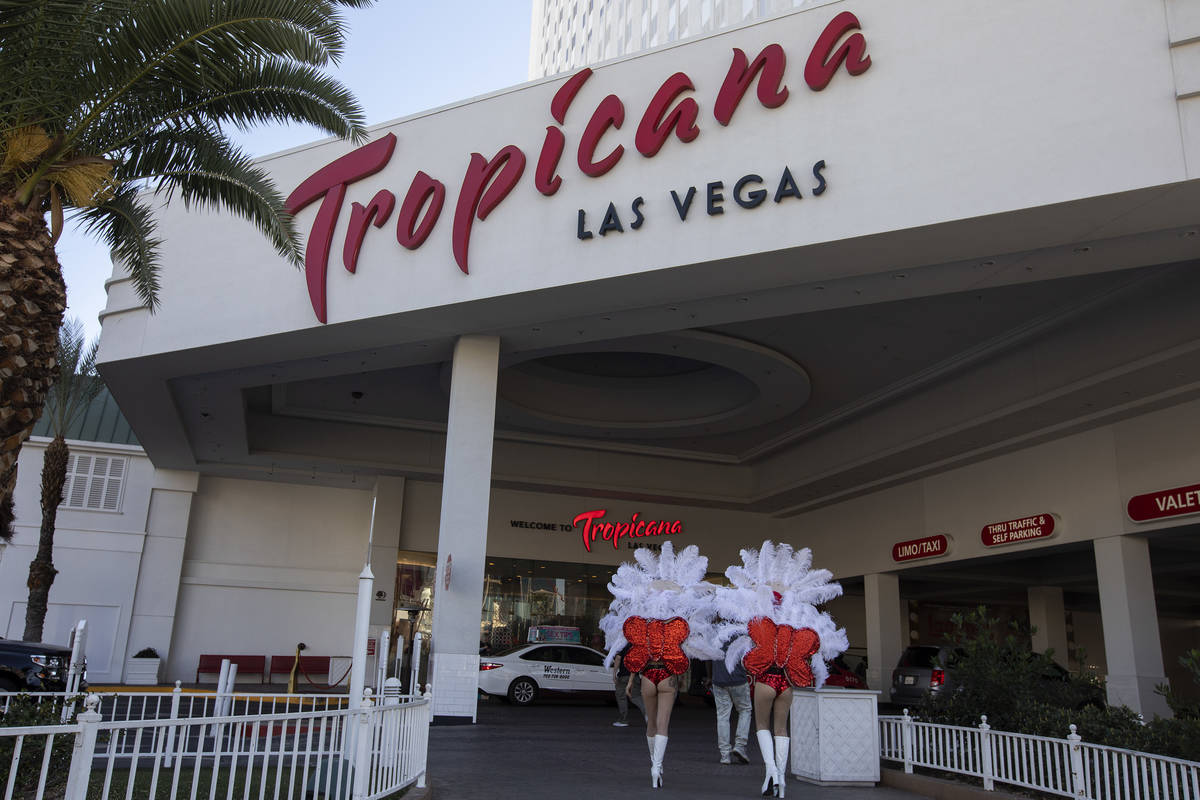Penn finalizes sale of Tropicana real estate on Las Vegas Strip

Penn National Gaming’s real estate spinoff, Gaming & Leisure Properties Inc., now owns the land under the Tropicana.
While Penn will control the property in the near-term, operations may be sold off in coming years, according to documents filed Monday with the U.S. Securities and Exchange Commission.
GLPI closed the acquisition, first announced last month, on Thursday for $307.5 million in rent credits, which will be applied to existing leases beginning in May.
Penn is set to operate the property for two years, according to the documents, or until the land and casino are sold — whichever comes first.
If a sale is made in the first year, Penn is set to receive 75 percent of the net proceeds above $307.5 million. If completed in the second year, the casino operator will receive half the proceeds over the same basis.
The deal helps preserve Penn’s liquidity while its 41 properties are closed during the nationwide shutdowns, bringing revenue streams to a halt.
As of March 31, the company had about $730 million of cash and cash equivalents, according to the federal documents.
Since then, CEO Jay Snowden said the company has taken “swift measures” to reduce its daily operating expenses. The company is selling the real estate assets of a new ground lease for a planned casino in Morgantown, Pennsylvania to GLPI, decreased compensation to its executives and board of directors and furloughed its 26,000 employees nationwide.
“We believe that these collective steps will allow us to successfully weather the state-mandated closures related to the COVID-19 crisis,” Snowden said.
A note from SunTrust Robinson Humphrey published March 17 — before Penn took these measures — said the company had about four months left before it ran out of cash in a zero-income scenario. After these changes, the company should have enough cash now to last through the rest of the year, according to a Monday note from Macquarie Research. Its average monthly cash burn has dropped to $83 million during the shutdowns.
“While we believe this decline could be slightly worse (than the last downturn), we are assuming that the sector remains relatively resilient,” Macquarie analyst Chad Beynon said in the report.
Penn also said it plans to launch a Barstool-branded mobile sports betting product in the third quarter of this year, which will combine its 20 million loyalty members with Barstool’s 66 million monthly unique visitors on various social media networks, Beynon said.
“(We) believe the pause in sports may help Barstool market share once sports reopen,” he said in the note.
Snowden said he believes the company’s geographically diverse portfolio makes it “well-positioned to benefit from a state-by-state phased-in approach” outlined in President Donald Trump’s “Opening Up America Again” guidelines, which were issued last week.
Penn has properties in 19 states, including the Tropicana and the M Resort in Southern Nevada, and has no more than 15 percent of revenue derived from a single state.
Penn shares were down 1.4 percent to $13.87 early Monday afternoon.
Contact Bailey Schulz at bschulz@reviewjournal.com or 702-383-0233. Follow @bailey_schulz on Twitter.